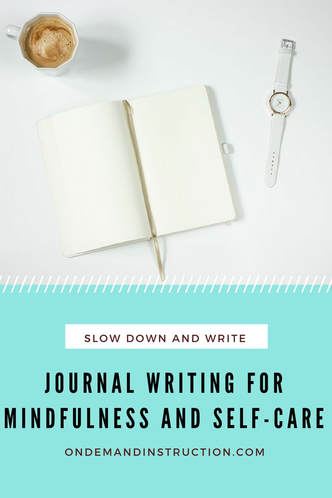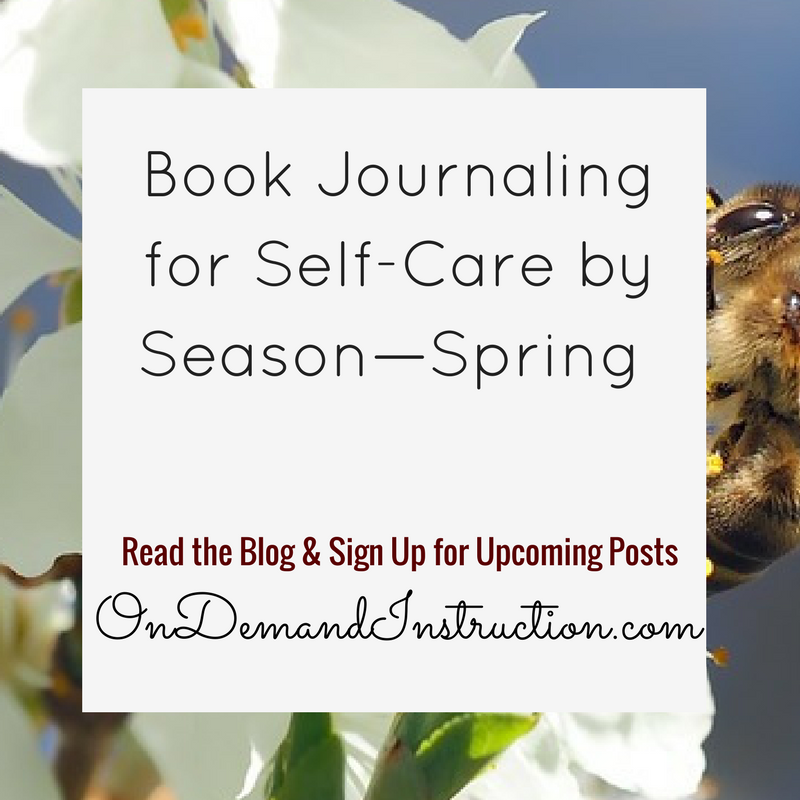 Likely, you have noticed how much talk there is around the topics of self-care and mindfulness. I hear these terms used to describe all kinds of activities—everything from getting your hair done to attending a meditation retreat seems to fall into the categories of personal rejuvenation. In fact, I noticed on a listing of professional development workshops offered locally, the one on mindfulness filled up the fastest. Today, people share similar struggles no matter their profession, income bracket, or background. We are stressed-out, overworked, drained, and exhausted. Our love of life has waned to a point where we are grasping desperately onto a return to basics to take care of ourselves. Beneath the layers of fatigue, indifference, and failed goals, so many of us just need to recharge our batteries. In a fast paced world, many of us have turned to journaling as a means for self-care and mindfulness. The research shows us that conscientious journaling can relieve stress and increase happiness. Getting a journaling practice may take a little bit of time and effort, but just like exercise or meditation, the positive effect comes from giving it a fair try. Write What You Know |
About the SiteWelcome, Writers! Archives
September 2023
|







 RSS Feed
RSS Feed